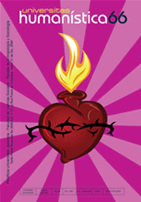Abstract
This article resumes a social investigation that tried to show the interrelationship between death zones and serious architectural deterioration in the center of Bogotá; the processes of urban renovation that took place in the former “Calle del Cartucho” and the people that used to live there (mainly homeless people), and the use of violence. Analysis of the results evidenced that social cleansing is not the principal cause of death of homeless people; furthermore, there is no apparent institutional control and state monopoly over the violence in this sector, because these zones, despite the previously mentioned circumstances, maintain a series of implicit rules that govern and limit them, based on the structurizing use of violence. We also saw that there is a clear coincidence between the homicide maps and those zones of urban deterioration, and finally, how social representations about the people that live there reinforce the initiative of urban renovation, based on an aesthetic and utilitarian ideal that responds to the logic of the capital. With this panorama, we conclude that the recuperation process of deteriorated urban centers form part of a “kitsch” strategy that privileges the embellishment, perpetuating and displacing social problematics.

This journal provides immediate open access to its content on the principle that making research freely available to the public, encourages greater global exchange of knowledge.
The journal Universitas Humanística is registered under a Creative Commons Attribution 4.0 International Public License. Thus, this work may be reproduced, distributed, and publicly shared in digital format, as long as the names of the authors and Pontificia Universidad Javeriana are acknowledged. Others are allowed to quote, adapt, transform, auto-archive, republish, and create based on this material, for any purpose (even commercial ones), provided the authorship is duly acknowledged, a link to the original work is provided, and it is specified if changes have been made. Pontificia Universidad Javeriana does not hold the rights of published works and the authors are solely responsible for the contents of their works; they keep the moral, intellectual, privacy, and publicity rights.
Approving the intervention of the work (review, copy-editing, translation, layout) and the following outreach, are granted through an use license and not through an assignment of rights. This means the journal and Pontificia Universidad Javeriana cannot be held responsible for any ethical malpractice by the authors. As a consequence of the protection granted by the use license, the journal is not required to publish recantations or modify information already published, unless the errata stems from the editorial management process. Publishing contents in this journal does not generate royalties for contributors.


